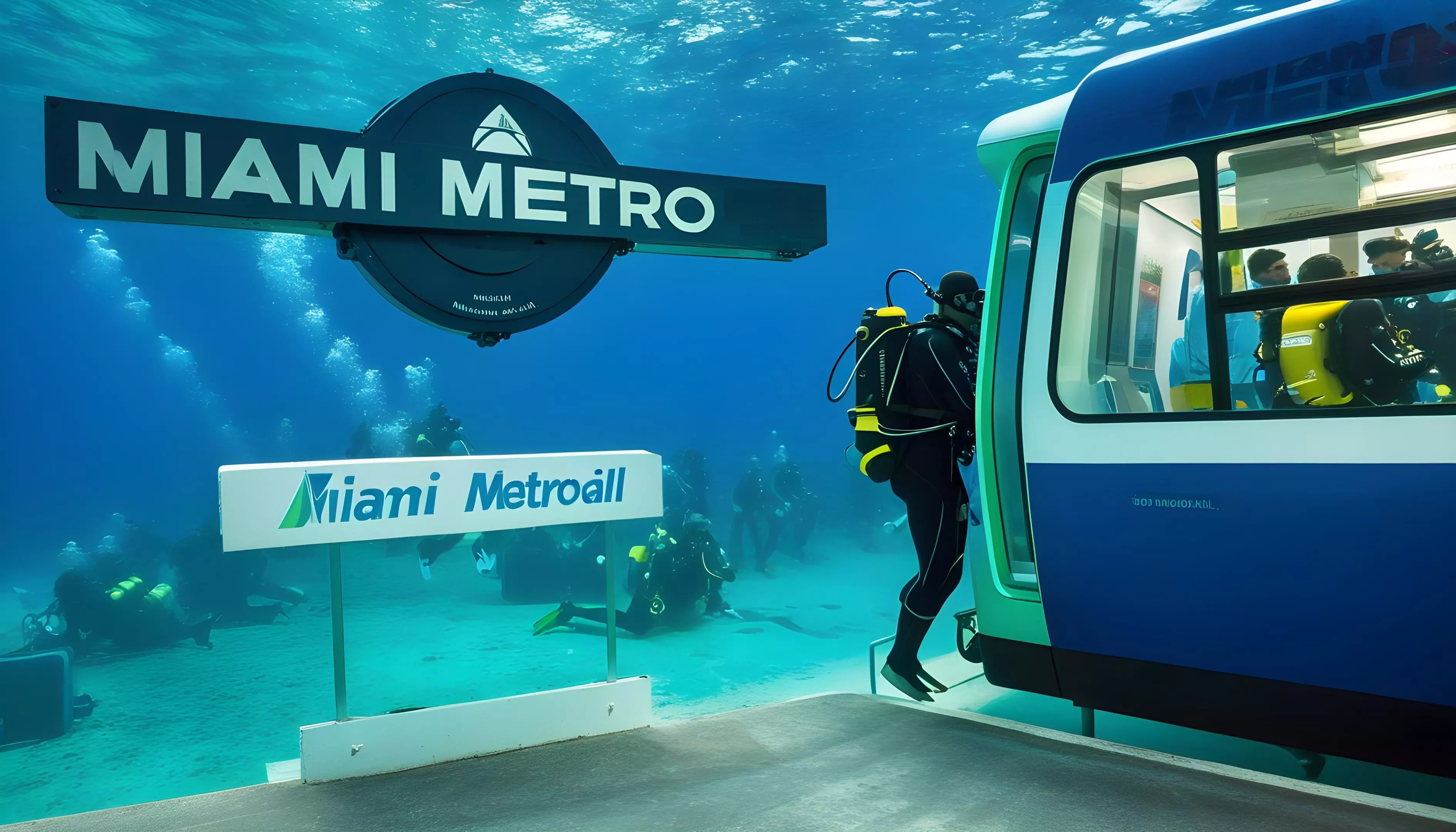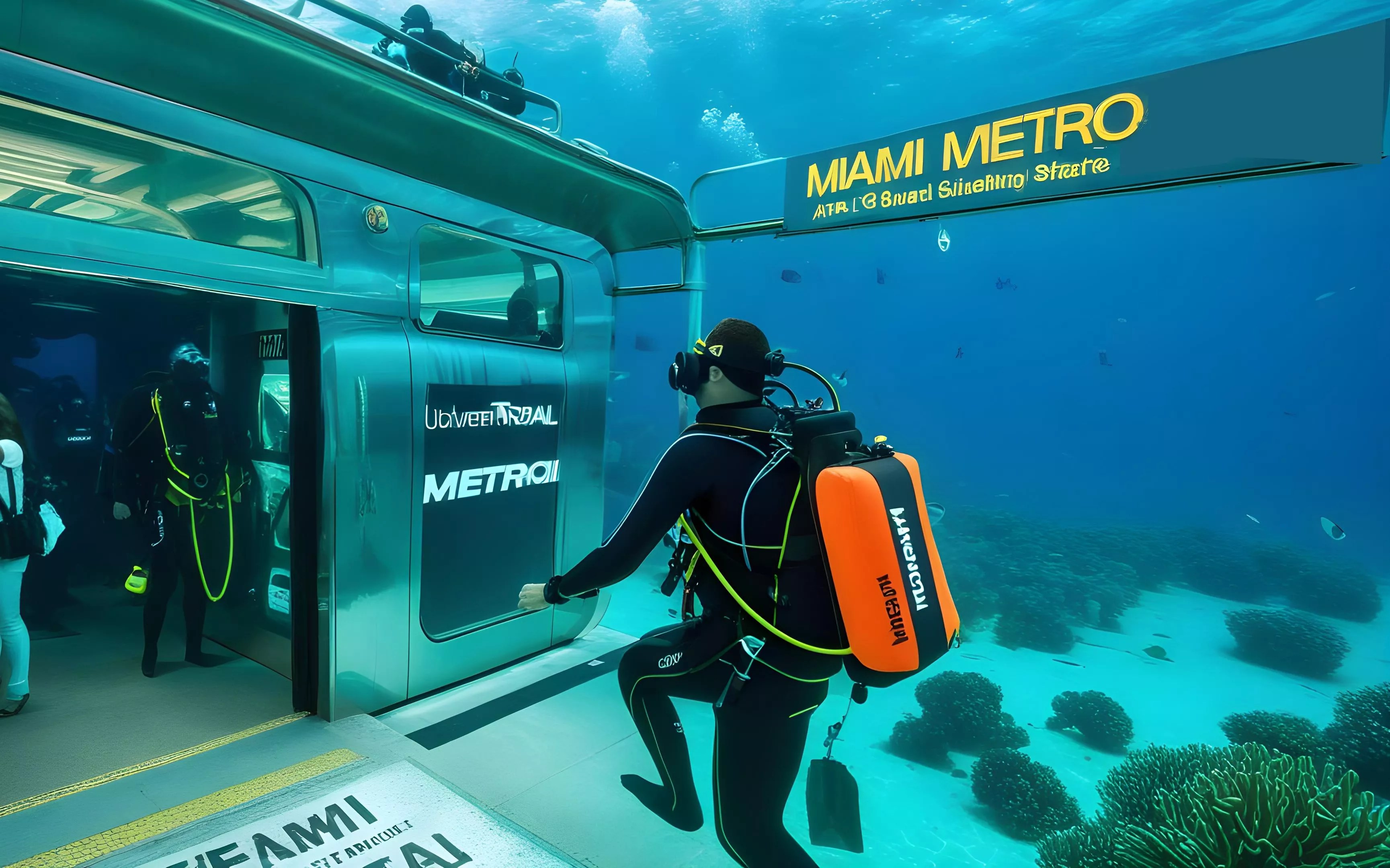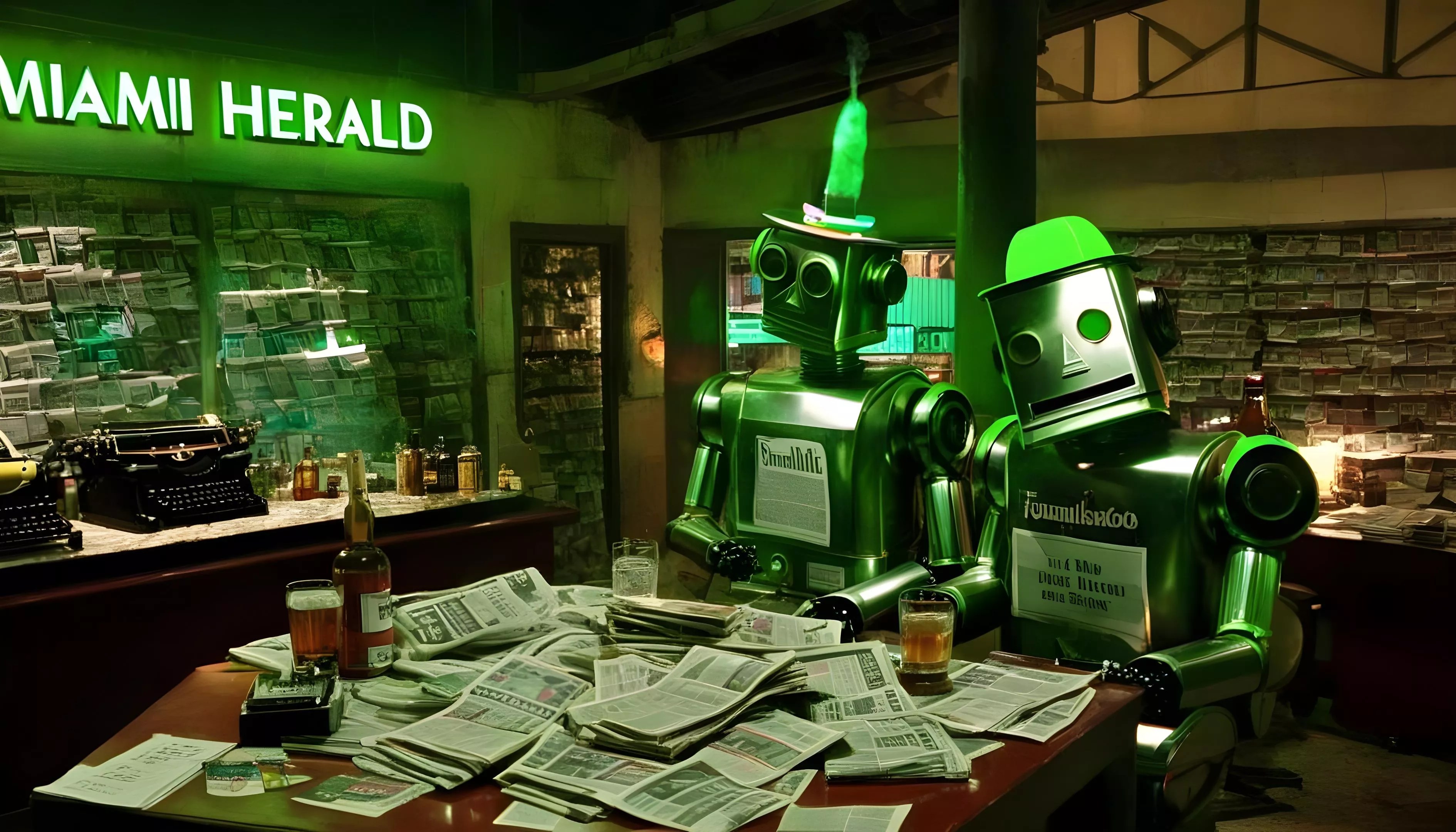
New Times AI-assisted artist conception

Audio By Carbonatix
Little Havana business owners Bill Fuller and Martin Pinilla might have to wait a while to secure the $63.5 million that Miami Commissioner Joe Carollo owes them – and if they’re relying solely on his city wages to collect the debt, South Florida will likely be looking a lot different by the time it’s all said and done.
One would think Fuller and Pinilla are already rolling in cash after winning their juicy judgment against Carollo in a lawsuit accusing him of using city resources to relentlessly harass their businesses over a personal vendetta. The duo recently moved to garnish Carollo’s wages as commissioner, a seemingly reasonable first step in collecting the debt.
But the pair’s road to restitution will be long and hard.
Carollo currently makes around $58,000 as a city commissioner, and the law permits up to 25 percent to be withheld from a defendant’s disposable earnings (above a minimum threshold) to satisfy a judgment debt.
So, it would only take a mere 4,500 years for the pair to be paid out via Carollo’s city wages.
Fuller and Pinilla could go after other assets or income to chip away at the debt, but it’s safe to say that extracting more than $60 million from Carollo, if not impossible, will take a very long time. Short of Carollo being cryogenically frozen for centuries while retaining an honorary seat on the city commission (with pay, of course), it’s going to be tricky for Fuller, Pinilla, and their future estates to obtain all the money by garnishing a Miami municipal salary.
These calculations got us thinking: What might Miami and its city government look like in a few thousand years when the debt would be paid off?
Take a journey with us through a dystopian underwater metropolis where residents travel by submarine, Alex Díaz de la Portilla’s clones reign, and the UM football team has resurrected its glory days.

New Times AI-assisted artist’s conception
Miami Underwater
By the year 6523, polar ice caps have melted and the City of Miami is completely submerged in the Atlantic Ocean. We ride the Better Submarine Network to work and sport scuba gear to go out on the town, paying all of our expenses with digital cryptocurrencies. Somehow, there is still no Metromover extension connecting the city center to Miami Beach. You just have to float on over there.
On the bright side, Miami’s drainage issues are no longer a problem.

Five Diaz de la Portillas, with a Carollo popsicle on the side.
New Times AI-assisted artist’s conception
Díaz De La Portilla Dynasty Lives On
Despite being frozen in time as a cryogenically preserved member of the commission, Joe Carollo still has many allies in the Magic City.
The city has done away with commission elections and instead inserts clones of Commissioner Alex Díaz de la Portilla at various stages of the lifecycle. The copies of Díaz de la Portilla, who was recently indicted on charges of bribery, official misconduct, and unlawful compensation, will work in tandem to ensure developers’ projects and lobbyists’ requests are speedily carried out so that Miami’s efficient governance lives on.
The clones tell New Times they are working to ensure the city never forgets Uncle Joe and the legacy he left at Maurice A. Ferré Park, including his extravagant Dogs and Cats Walkway.

“Prepare to be informed, humanoids.”
New Times AI-assisted artist conception
Miami Herald Robo-Reporters
Covering allegations of corruption and abuse of power on the City of Miami Commission eats up a good deal of time and financial resources. Attending Carollo’s civil court proceeding and tracking the maze of claims – it was a hefty expense for newsrooms.
By the year 6523, the Miami Herald‘s parent company, run by an automated cost-cutting hedge fund, has eliminated the city government beat, gutted the Pulitzer Prize-winning newsroom, and stopped printing hard copies of the paper. All of the stories are now written by Herald Bots and artificial intelligence software. The managing editor is Herald Bot One, which began its career as a real estate reporter 4,500 years ago.

MiamiCoin 101
New Times‘ AI-assisted artist’s conception
MiamiCoin Is Legal Tender
As former Miami Mayor Francis Suarez predicted 4,500 years ago, municipal taxes have been replaced by the city’s revenue from cryptocurrency. Though MiamiCoin’s first 100 versions over the centuries went belly up, MiamiCoin Version 101 is legal tender and the official currency of the city.
The coin has been rebranded with images of the mayor’s face and his perfectly threaded eyebrows.
UM Football Finally Back
We heard it many times over the years: “Bro, the U is back for real this time.” The team starts 4-0 and rises in the national rankings, just to be whooped by a 1-4, bottom-tier ACC team and finish the year 5-7. But thankfully, Mario Cristobal’s great-great-great (10X) grandson has turned things around.
With Michael Irvin’s descendants running routes, Ray Lewis’ progeny at linebacker, and Gino Toretta’s distant relative playing quarterback, the team wins back-to-back national titles.
See ‘Canes fans, you are only 4,500 years away from another championship.